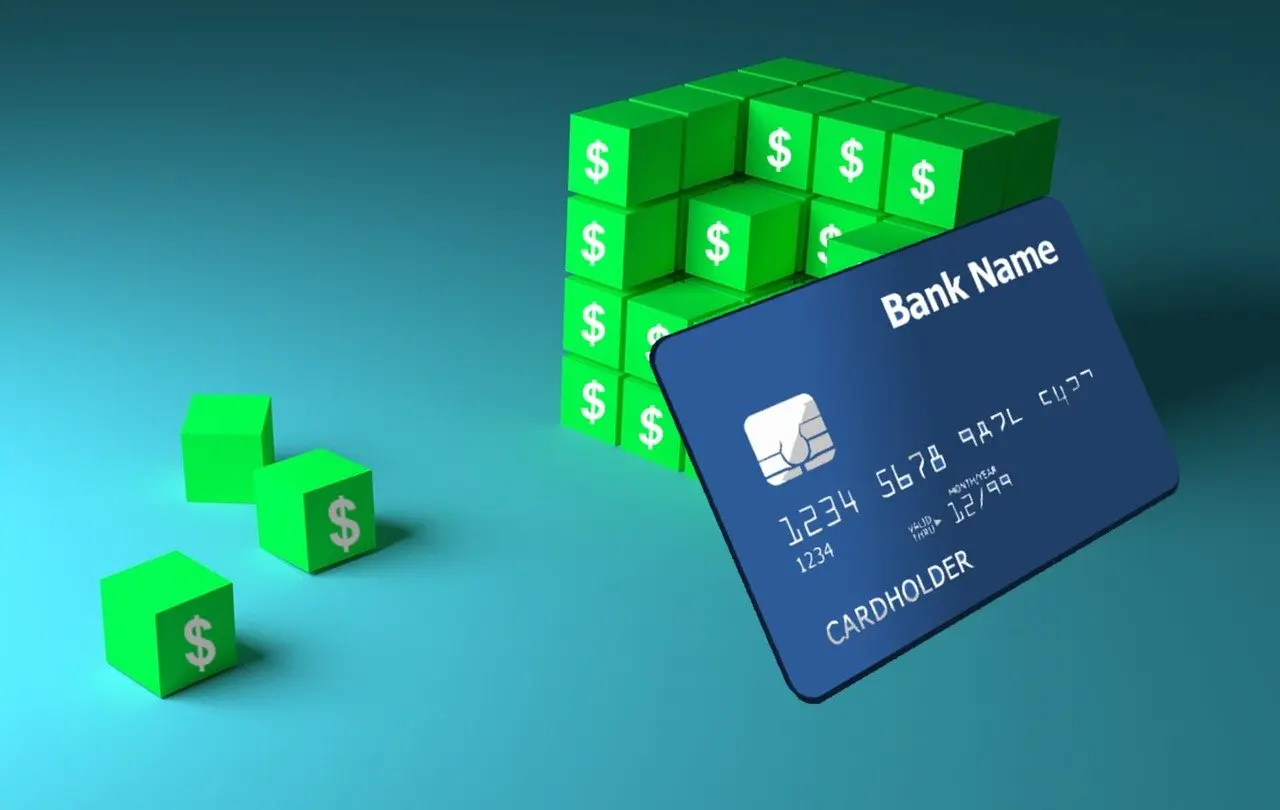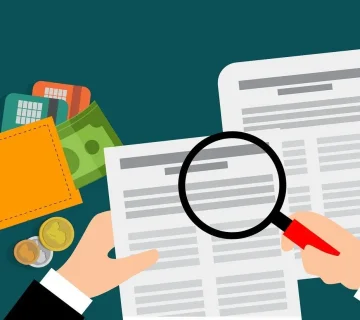Having a great credit history and credit score is crucial for your long-term money related victory in Canada. Your credit score is a pointer of your financial soundness and you’ll require a great credit score to qualify for advances, contracts, and even housing rentals.
As a newcomer in Canada, you can be uncertain how credit scores work or have some misconceptions about solid credit practices. Here are eight myths about Canadian credit scores that newcomers have to protect themselves against to construct a great credit score.
Myth 1: Credit history from my home nation carries over in Canada
Prior to arriving in Canada, you might have a significant credit history in your domestic nation. Numerous newcomers believe that this credit history from their domestic nation will be exchanged over to Canada, and that they will not have to start once again. However, usually this is false.
Nations have diverse credit organizations and ways of calculating credit scores. As a result, your credit score and history from your home country are not transferable to Canada. Your Canadian credit history begins after you arrive and get credit within the shape of a credit card, loan, line of credit, or mortgage, from a Canadian financial institution.
In case you’re moving to Canada from the USA, the same credit organizations, Equifax and TransUnion, could be mindful of following your credit history in both nations. Be that as it may, these agencies do not share data over universal borders, so you’ll need to begin building your credit history from scratch in Canada.
That being said, beginning with no credit history isn’t the same as beginning at the foot of the credit scale. Once you begin utilizing and paying off your credit card bills, your credit score will likely begin within the “fair” range.
Myth 2: Money in my investment and saving funds account tallies towards my credit score
As a newcomer, it is more often than not a great idea to set aside some cash in a chequing or investment funds account for future costs and crises. A high-interest reserve funds account (HISA) can indeed assist you in developing your funds. Be that as it may, this money has no affect on your credit score.
Savings and chequing accounts are not recorded on credit reports since no borrowing or obligation is included in these accounts. Since your credit score and history reflect your capacity to reimburse obligations, only money-related items that include credit, such as credit cards, credits, lines of credit, or contracts, are included in your credit report.
Be that as it may, the money in your chequing and saving accounts can be utilized to pay off obligations and keep up a normal installment plan for your credit items, particularly in times when your wage isn’t sufficient to cover these installments. Guaranteeing you make normal obligation installments will offer assistance to make strides in your credit score.
Myth 3: Credit scores do not matter – I won’t take credit unless I require it
Numerous newcomers come to Canada from nations that are credit-averse, where getting into any kind of debt obligation is scowled upon. In such a case, you’ll either have restricted encounter with credit or your intuition may be to only take credit after you require it. In Canada, in any case, credit plays a significant part in the economy and having a great credit history is basic for your budgetary victory.
A credit score is an appraisal of your financial soundness or the probability that you’ll pay off your obligation based on your past monetary history. While you will not require credit today, building your credit history early will assist you qualify for advances and lower interest rates once you apply for a car loan, education advance or mortgage afterward. In reality, in a few cases, you’ll moreover require a great credit score for your application to lease a home, get a cell phone plan, and even on a work application.
As a newcomer, obtaining and using a credit card is the most straightforward way to construct your credit history. Begin paying for scheduled purchases like basic supplies and household fundamentals with your credit card rather than cash to get comfortable with the concept of credit. Then pay off the balance of your card each month from your chequing or savings account.
Myth 4: My credit score is based on my salary
Numerous newcomers think that you simply ought to be wealthy to have a great credit score. In truth, in any case, your profits are not specifically factored into the calculation of your credit score and are not included in your credit history.
Credit scores reflect your installment history, or how well you reimburse obligation, instead of how much cash you have got accessible. A high income does not ensure that you’ll utilize that cash to pay off your bills. In any case of your salary, you ought to use caution about only taking credit that you simply can pay off in a normal, convenient way.
Credit utilization ratio, or the rate of your generally accessible credit that’s currently being utilized, is another figure that impacts your credit score. RBC advisors regularly suggest utilizing up to 35% of your credit limit, to construct your credit score. Expanding your credit constraint will increase the sum of credit you’ll utilize without harming your credit score. Your profit can have a backhanded impact when you’re applying for unused credit items or an increase in your credit limit, as financial institutions will ordinarily take both your salary and credit history into account.
Myth 5: The more credit cards I accumulate the more I progress my credit score
As a newcomer, it can be enticing to believe that getting numerous credit cards will assist you in constructing your credit score quickly. Be that as it may, that’s not essentially true. Having different credit cards can either offer assistance or harm your credit scores, depending on how you employ them.
Whereas numerous credit cards will grant you get to to a bigger total credit limit, your credit score will be decided by how you employ that limit. In the event that you’re utilizing your credit cards properly and paying off all the bills in full, on time, then having multiple credit cards can work to your advantage. Since your credit utilization ratio takes into consideration the limits of all your credit cards and other credit items, keeping up the same level of investing even after you get extra credit cards can lower your overall credit utilization and progress your credit score.
Be that as it may, having several credit cards can too create a circumstance where you end up spending more than you’ll effectively reimburse. This may result in deferred installments, which in turn, lead to high interest and penalties. It can moreover negatively affect your credit score. You should talk with a financial advisor to better understand which credit card alternatives may be right for your special circumstance and whether you need a variety of cards.
Myth 6: Checking my credit score will substantially lower it
When you’ve just begun building your credit history, it’s critical to keep track of your credit score to form beyond any doubt it’s heading within the right course. This could also assist you in recognizing and reporting mistakes or occurrences of identity fraud in an opportune manner. Be that as it may, many newcomers mistakenly accept that checking their credit score will contrarily affect it.
The truth is that once you check your own credit score or credit report, it tallies as a “soft” inquiry and doesn’t hurt your score. Be that as it may, a “hard” request, such as by a financial institution or loan specialist, can lower your score by some points. Difficult requests are usually initiated by banks, banks, or mortgage providers to check your financial soundness before they can issue new credit, credit cards, or other credit products to you. It’s imperative to note that when numerous requests for the same type of advance are made within a brief period, such as when you’re shopping around for mortgage rates, they are typically counted as one inquiry.
A few banks like RBC permit clients to check their credit score for gratis, at any time, utilizing their online banking site. You’ll moreover get copies of your point-by-point credit report through Equifax or TransUnion.
Myth 7: To keep my credit score up I only have to pay the minimum balance on my credit card
One common misguided judgment that newcomers have is that carrying balance on a credit card makes strides in your credit score. Typically wrong and, in case frequently practiced, can adversely affect your credit score.
In the event that you’re only paying off the minimum balance on your credit card for a specific month, it doesn’t count as a missed payment, so there may not be a quick direct impact on your credit score. In any case, you will be charged interest for the remaining balance within the following installment cycle. Credit instruments like credit cards typically have exceptionally high rates of interest, and putting off paying balances in full can make it harder for you to pay off your debt afterward.
In expansion, most monetary institutions and lenders see how much you owe compared to how much credit you have accessible. Hence, carrying an adjust from one month to another can increase your overall credit utilization proportion. This could unfavourably affect your credit score.
That being said, on the off chance that you’re in a circumstance where you’re battling to cover costs, prioritize debt installments based on the intrigued rates they carry. Wherever conceivable, make at slightest the minimum installment and pay off the remaining sum as soon as possible. Talk to a budgetary advisor to urge advice that is particular to your monetary circumstance.
Myth 8: Regardless of the agency my credit score will remain the same
The two national credit reporting organizations, Equifax and TransUnion, have their personal scoring criteria for the calculation of credit scores. In spite of the fact that they take comparable variables into account—your installment history, credit utilization ratio, term of credit, etc., your score might change somewhat based on which agency’s report you’re looking at.
When a monetary institution or loan specialist runs a request on your credit score, they might see at reports from any credit detailing office. It’s a great hone to keep a near eye on your credit reports with both major credit offices to remain up-to-date on your budgetary position.
A great credit score will be pivotal as you explore the budgetary framework as a newcomer in Canada. The errand of building an extraordinary credit score from scratch in a modern nation could appear overwhelming. But by knowing what can hurt or progress your credit position and practicing healthy budgetary habits, you’ll be able to reveal your way to money-related victory in Canada.




